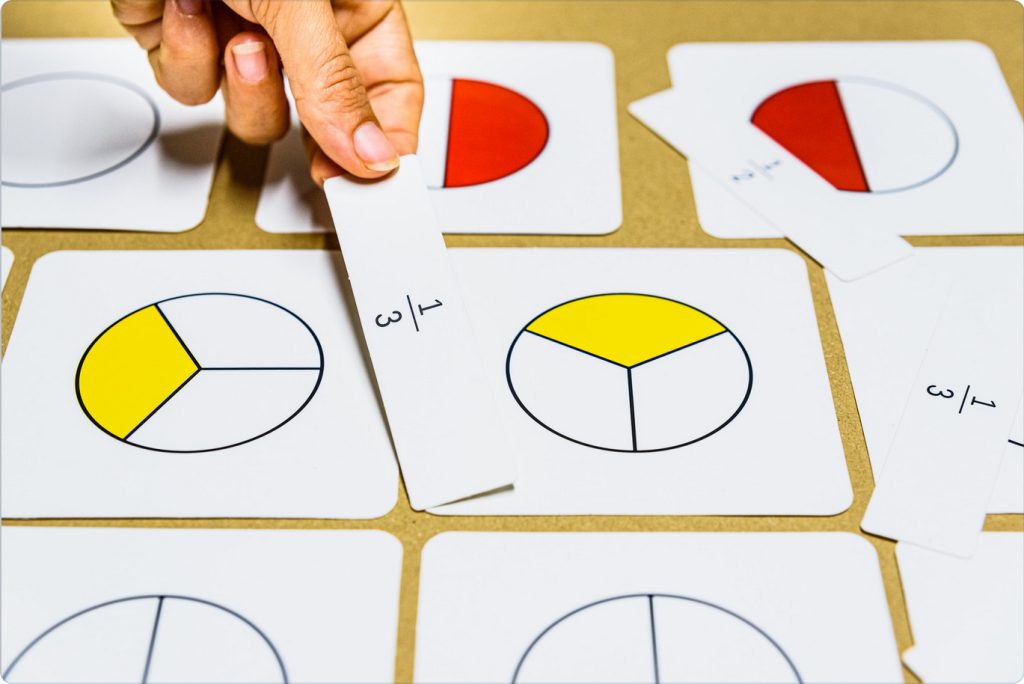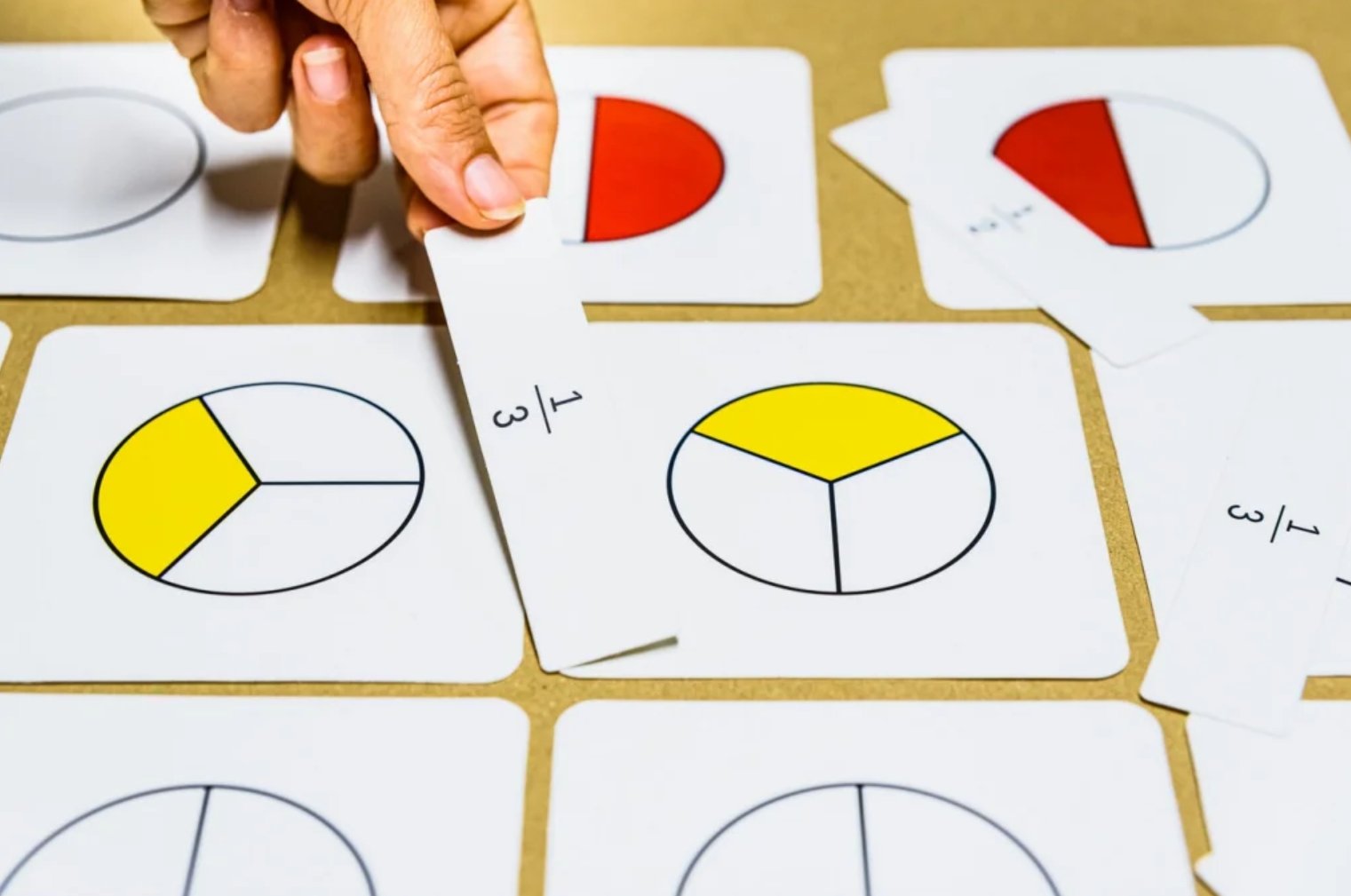Engaging preschoolers in math activities is a great way to develop their early numeracy skills.
To assist you in this endeavor, we have compiled a list of free printable math worksheets for preschool kids.
By incorporating these free printable math worksheets into your preschooler’s learning routine, you can foster their early math skills in a fun and interactive way.
From counting and number recognition to shapes, patterns, measurement, addition, subtraction, and problem-solving, these worksheets cover a range of essential concepts.

Related: Free Preschool Worksheets Age 3 – 5 (PDF)
Counting and Number Recognition:
- Counting Objects: Print worksheets that have a set of objects and ask your child to count and write the corresponding number.
- Number Tracing: Help your child practice writing numbers by using worksheets with dotted numbers that they can trace.
Source: https://empoweredparents.co/number-recognition-games/
Shapes and Patterns:
- Shape Recognition: Introduce different shapes with worksheets that prompt your child to identify and color specific shapes.
- Pattern Completion: Present worksheets with incomplete patterns and encourage your child to complete them by selecting the correct shape or color.
Source: https://www.k5learning.com/free-preschool-kindergarten-worksheets/shapes/patterns
Measurement and Comparison:
- Size Comparison: Use worksheets that involve comparing sizes, such as identifying the biggest or smallest object in a set.
- Measurement: Introduce basic measurement concepts using worksheets that require your child to compare the length or height of different objects.
Related: 25 Measurement Activities for Preschoolers
Source: https://www.pre-kpages.com/preschool-measurement-activities/
Basic Addition and Subtraction:
- Count and Add: Provide worksheets that involve counting objects and writing the total sum.
- Count and Subtract: Use worksheets where your child counts objects and writes the difference when some are taken away.
Source: https://home.oxfordowl.co.uk/maths/primary-addition-subtraction/addition-subtraction-year-1-age-5-6/
Time and Money:
- Telling Time: Help your child learn to tell time using worksheets that have clock faces and prompts for writing the corresponding time.
- Coin Recognition: Introduce coins and their values through worksheets that involve matching and identifying different coins.
Source: https://www.prekinders.com/preschool-money/
Graphing and Sorting:
- Graphing: Introduce basic graphing skills by using worksheets that ask your child to count and graph objects of different types or colors.
- Sorting: Help your child develop sorting skills with worksheets that require them to categorize objects based on specific attributes like shape, color, or size.
Source: https://frugalfun4boys.com/preschool-activity-sorting-counting-graphing/
Number Bonds and Simple Equations:
- Number Bonds: Introduce the concept of number bonds using worksheets that help your child understand the relationship between numbers. They can fill in missing numbers in number bond diagrams.
- Simple Equations: Use worksheets that involve basic addition and subtraction equations to help your child develop a foundational understanding of mathematical operations.
Source: https://www.splashlearn.com/math-vocabulary/number-sense/number-bonds
Patterning and Sequencing:
- Patterning: Present worksheets that require your child to continue or create patterns using shapes, colors, or objects.
- Sequencing: Use worksheets that involve arranging numbers or pictures in a sequential order, helping your child develop their logical thinking skills.
Source: https://www.lwtears.com/blog/7-sequencing-activities-kindergarteners-and-preschoolers
Problem Solving:
- Word Problems: Introduce simple word problems through worksheets that require your child to read a scenario and solve a basic math question.
Source: https://www.primarybeginnings.com/blog/problem-solving-skills-for-preschoolers
Number Identification and Writing:
- Number Identification: Utilize worksheets that help your child recognize and identify numbers by having them circle or color the correct number.
- Number Writing: Encourage your child to practice writing numbers by using worksheets that provide tracing or writing exercises for each number.
Number Operations:
- Counting Forward and Backward: Use worksheets that assist your child in counting forward and backward from a given number.
- Skip Counting: Introduce skip counting by incorporating worksheets that prompt your child to fill in the missing numbers in a sequence (e.g., counting by 2s, 5s, or 10s).
Time and Calendar:
- Days of the Week: Introduce the concept of days of the week using worksheets that ask your child to arrange the days in the correct order.
- Months of the Year: Help your child learn the months of the year by using worksheets that require them to fill in missing months or sequence them correctly.
Fractions and Simple Measurement:
- Introduction to Fractions: Introduce basic fractions using worksheets that involve coloring or dividing shapes into halves or quarters.
- Measurement Units: Utilize worksheets that introduce simple measurement units like inches, centimeters, or ounces, allowing your child to practice measuring objects.
Number Comparison:
- Greater Than, Less Than: Use worksheets that involve comparing numbers and asking your child to identify which number is greater than or less than the other.
Number Bonds and Fact Families:
- Fact Family Houses: Introduce fact families using worksheets that feature fact family houses, where your child fills in the missing numbers to complete addition and subtraction equations.
Tally Marks:
- Tally Counting: Present worksheets that help your child practice counting and representing numbers using tally marks. They can count objects and create the corresponding tally marks.
Symmetry:
- Symmetrical Drawing: Use worksheets that introduce the concept of symmetry, where your child can practice drawing the missing half of symmetrical shapes or images.
Number Line:
- Number Line Addition and Subtraction: Utilize worksheets that incorporate number lines to help your child practice addition and subtraction by hopping along the number line to find the correct answer.
Fractions:
- Fraction Coloring: Introduce fractions through worksheets that involve coloring in a specific fraction of shapes, such as coloring half of a shape or dividing shapes into equal parts.
Place Value:
- Place Value Blocks: Use worksheets with place value blocks to help your child understand the value of digits in different places, such as tens, ones, or hundreds.
3D Shape Attributes:
- 3D Shape Sorting: Introduce more complex 3D shapes through worksheets that require your child to sort and classify objects based on their shape attributes.
Money Word Problems:
- Money Math: Introduce word problems related to money, where your child needs to solve problems involving buying items, giving change, or counting money.
Skip Counting Patterns:
- Skip Counting Puzzles: Create puzzles where your child can practice skip counting by connecting the dots or filling in the missing numbers in a skip counting sequence.
Ordinal Numbers:
- Ordinal Number Match: Provide worksheets that involve matching ordinal numbers (e.g., first, second, third) with objects or positions in a sequence.
Source: https://www.learnwithhomer.com/homer-blog/6744/ordinal-numbers-for-kids/
Time Duration:
- Time Duration Calculation: Use worksheets where your child can practice calculating the duration of time, such as how many minutes or hours have passed between two given times.
Number Puzzles:
- Number Grid Puzzles: Design puzzles that require your child to fill in missing numbers in a grid based on the given sequence or pattern.
Math Facts Practice:
- Math Fact Drills: Create worksheets that focus on practicing basic math facts, such as addition and subtraction facts within a specific number range.
Source: https://www.weareteachers.com/15-fun-ways-to-practice-math/
Fractions Comparison:
- Fraction Comparison: Provide worksheets that ask your child to compare fractions by shading or circling the greater or lesser fraction.
Math BINGO:
- Math BINGO Cards: Create BINGO cards with numbers, shapes, or math problems for your child to play a fun and educational game.
Source: https://www.onlinemathlearning.com/bingo-games-kids.html
Conclusion:
Utilizing these free printable math worksheets for preschoolers can be an effective way to introduce and reinforce early math skills.
Engage your child in counting, number recognition, shapes, patterns, measurement, basic addition and subtraction, and concepts of time and money.
Remember to create a positive and supportive learning environment, and make the activities enjoyable and interactive for your little ones.


